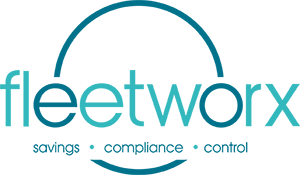27 Jul Imminent IFRS16 Accounting Standards Will Impact Car Fleets: Make Them Work to Your Advantage
The new IFRS16 accounting standard is effective from 1Jan 2019 and will affect publicly listed companies that operate a leased company car fleet. It is broad reaching legislation that fundamentally changes the way organisations report their leases, forcing them to be recognised under an on balance sheet accounting model.
Currently such leases are classified as Operating leases and are kept off balance sheet. These Operating leases’ will now only apply to leases which are 12 months or less or where there is a ‘low value’, which is generally accepted as less than $5k.
Consequently, companies who use a lease funding model to procure their car fleet are now obliged to report this information in a different, more sophisticated manner. Currently the leasing contracts can be reported on the P&L account, meaning there is no need to have such a detailed insight into the data held within each contract.
And here is the rub.
By moving the reporting to the balance sheet, companies must now have a far more robust leasing information system.
Many of our clients are working with their accountancy partners to establish a robust means of recording data on all leases throughout their business.
Our clients have the substantial challenge of understanding what specific values they need to capture in the first instance and thereafter what may change, all proving fundamental to the design and build of their ‘lease information systems’.
Discipline issues
What has taken many by surprise, is the huge variation of lease structures and reporting practices around EMEA, limiting the granularity of reporting in some cases to the lowest common denominator. It is not unusual in some less developed markets just to receive a single monthly rental figure which includes all services whereas, in others, finance and services are itemised to a granular level.
Also, what is evident, is that most businesses up to this point, have lacked discipline and structure when it comes to recording their vehicle lease contract arrangements with their suppliers.
At best, these are dispersed across the region and, at worst, contract documentation cannot be located at all.
And the retrieval of this data from across the EMEA region is perhaps the most challenging aspect of all. Communicating with sometimes more than 80 suppliers from 30 plus countries, and attempting to extract the required data in a standardised format, is no mean feat.
The idiosyncracies of vehicle leasing also add complexity to the recording and reporting process. Unlike equipment or building leases, where the rental and term remains static, vehicle rentals and end dates can change due to mileage variations. So, not only do the supply chain need to be engaged once to collect the initial data, they also need to be kept engaged so changes in rental or terms can be accurately reported.
Collecting lease data accurately and timely will be critical to the successful adoption of IFRS16 reporting. The challenge however, as we have found, is that a complex supply structure creates a complex array of data formats. And where corporates often have centralised structures with scant resource, it is very difficult to maintain dozens of supplier relationships at the right level to retrieve and manipulate the information to the right standard.
This ability to accurately collate and manage lease data is where Fleetworx clients have a substantial head start on their peers. As part of our “Fleet Category” management services, Fleetworx holds relationships with all the fleet supply chain on ours clients’ behalf. Which means we remove the pain of collecting critical contractual data and monitoring any contractual changes due to mileage variations or otherwise. Crucially, this data is also validated, cleansed if necessary and stored in Fleetworx Centrax database.
The value for our clients comes from the single report we produce which consolidates their lease data from across the EMEA region: helping them manage their “lease information systems” more closely, more accurately and less painfully.
We consider the introduction of IFRS16 an ideal opportunity for fleet owners to align their reporting systems, develop closer relationships with the fleet supply chain and gain a more thorough understanding of the fleet category cost. By its nature this then provides an excellent opportunity to deliver best practice and savings.
With support from a professional category management partner like Fleetworx, the task of developing a birds-eye view of the fleet category can be hugely simplified, whilst the rewards can be significant.
Back to Blogs Back to Case Studies List

Sorry, the comment form is closed at this time.